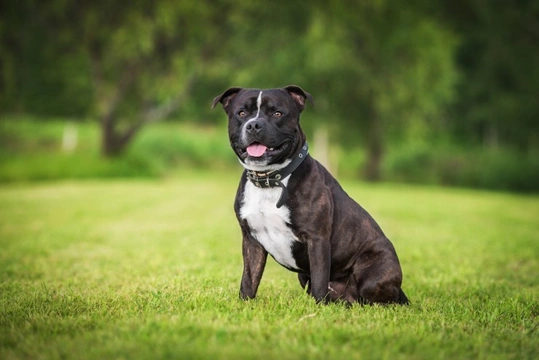
3 Alternative Dog Breeds for English Bulldog Buyers
The English bulldog remains one of the UK's most beloved dog breeds, well-known for its distinctive appearance and affectionate nature. However, due to its high purchase price and potential health challenges linked to brachycephalic features and exaggerated conformation, many prospective owners might consider alternative breeds that share desirable traits but offer improved health and affordability.
In this comprehensive guide, we'll introduce three great dog breeds for those thinking of welcoming an English bulldog into their home but seeking something with fewer health concerns and lower costs. These alternatives maintain the loyal, affectionate temperament many admire in English bulldogs while often being more active, resilient, and easier to care for.
1. The American Bulldog: Athletic and Loyal Companion
The American bulldog is a strong alternative for English bulldog enthusiasts. Though not officially a pedigree breed in the UK, it shares many physical and temperament traits with its English cousin. Generally taller and leaner, American bulldogs boast a more athletic build that contributes to a healthier lifestyle and longer lifespan.
American bulldog puppies tend to have less exaggerated brachycephalic features compared to English bulldogs—resulting in fewer breathing issues and less susceptibility to heat stress. Their short, dense coat is low maintenance, requiring only weekly brushing and occasional baths.
Temperamentally, American bulldogs are loyal, protective, and affectionate family dogs, though they may be wary of strangers initially. Their energy levels require regular vigorous exercise, such as long walks or play sessions, to prevent boredom-related behaviours. Owing to their size and exercise needs, they suit committed owners who enjoy an active lifestyle.
Importantly, American bulldogs are considerably more affordable than English bulldogs, with average puppy prices around £650. This makes them an economical choice without sacrificing much of the beloved bulldog charm.
2. Staffordshire Bull Terrier: Affectionate and Adaptable
The Staffordshire bull terrier, or Staffy, offers a compact, muscular alternative with a distinct appearance, yet many shared traits in temperament and coat type with English bulldogs. Recognised as a pedigree breed in the UK, Staffies are known for their affectionate and gentle nature, especially with children, earning the nickname “nanny dogs.”
Staffordshire bull terrier puppies do not have the brachycephalic features typical of bulldogs, reducing related health problems such as breathing difficulties. Their smooth, short coat is similarly low maintenance with weekly brushing.
Staffies exhibit moderate energy levels and require daily exercise to stay healthy and balanced. They are intelligent and highly trainable, often more biddable than English bulldogs, which can appeal to first-time dog owners or those seeking an engaged canine companion.
Financially, Staffordshire bull terriers are more accessible. Pedigree pups average around £965 but non-pedigree examples can be found for approximately £468, making this breed budget-friendly while still delivering the loyalty and affection bulldog fans appreciate.
3. Boxer: Energetic and Playful Family Dog
The boxer is a larger, energetic dog breed well-known across the UK for its muscular build, spirited personality, and affectionate family nature. Though sometimes overlooked in recent years, boxers remain popular among active households.
Boxers share the brachycephalic facial structure typical of bulldogs but tend to have less extreme features, helping mitigate some health concerns. With a short, easy-care coat similar to that of the English bulldog, boxers require only minimal grooming.
Boxer puppies need plenty of daily exercise—long walks, play sessions, and mental stimulation are essential to keeping this breed content. Their loyal, confident, and playful temperament suits families who can engage regularly with their dog.
While not as inexpensive as some alternatives, with pedigree boxers averaging around £1,130 and non-pedigrees about £970, boxers often have fewer health complications than English bulldogs, which can reduce lifelong costs related to veterinary care.
Questions Related to Buying and Choosing Bulldogs and Alternatives
How to buy a dog or find a puppy responsibly
Quick Answer: Buy dogs or puppies responsibly by researching reputable breeders, checking for health clearances, and avoiding impulse purchases.
When considering bringing home an English bulldog or an alternative breed, it is vital to approach the buying process responsibly. Prospective owners should look for reputable breeders or registered rescue organisations who prioritise the health and welfare of their dogs. This includes ensuring puppies are well socialised, vaccinated, and have appropriate health checks. Avoiding impulsive buying due to breed popularity or trends helps promote ethical breeding and better pet welfare outcomes. Questions to ask breeders include details about the puppy's parents, health screening results, and socialisation routines. Buying from responsible sources also supports the reduction of puppy farming and genetic health problems.
What are the common health concerns with English Bulldogs?
Quick Answer: English bulldogs commonly face breathing issues, joint problems, skin infections, and heat sensitivity due to breed-specific traits.
English bulldogs have a short-nosed (brachycephalic) face, which often leads to respiratory difficulties and overheating, especially in warmer weather. Their unique body conformation can contribute to joint conditions like hip dysplasia, and their skin folds are prone to infections if not cleaned regularly. Potential owners should be aware these health considerations can require significant veterinary care and financial investment. Alternative breeds like American bulldogs, Staffies, and Boxers typically have fewer such issues, making them more manageable long-term companions.
Conclusion
Choosing the right dog breed is a deeply personal decision that balances lifestyle, budget, and health considerations. For those drawn to the English bulldog's affectionate nature but concerned about cost and health issues, the American bulldog, Staffordshire bull terrier, and boxer offer excellent alternative choices in the UK. These breeds provide a good blend of loyalty, temperament, and potentially better overall health and affordability.
Prospective pet owners should always research thoroughly and consider adopting from reputable breeders or rescue groups to ensure the best welfare outcomes for their new dog. Responsible ownership, early socialisation, and regular veterinary care are key to enjoying many happy years with any of these wonderful companions.



